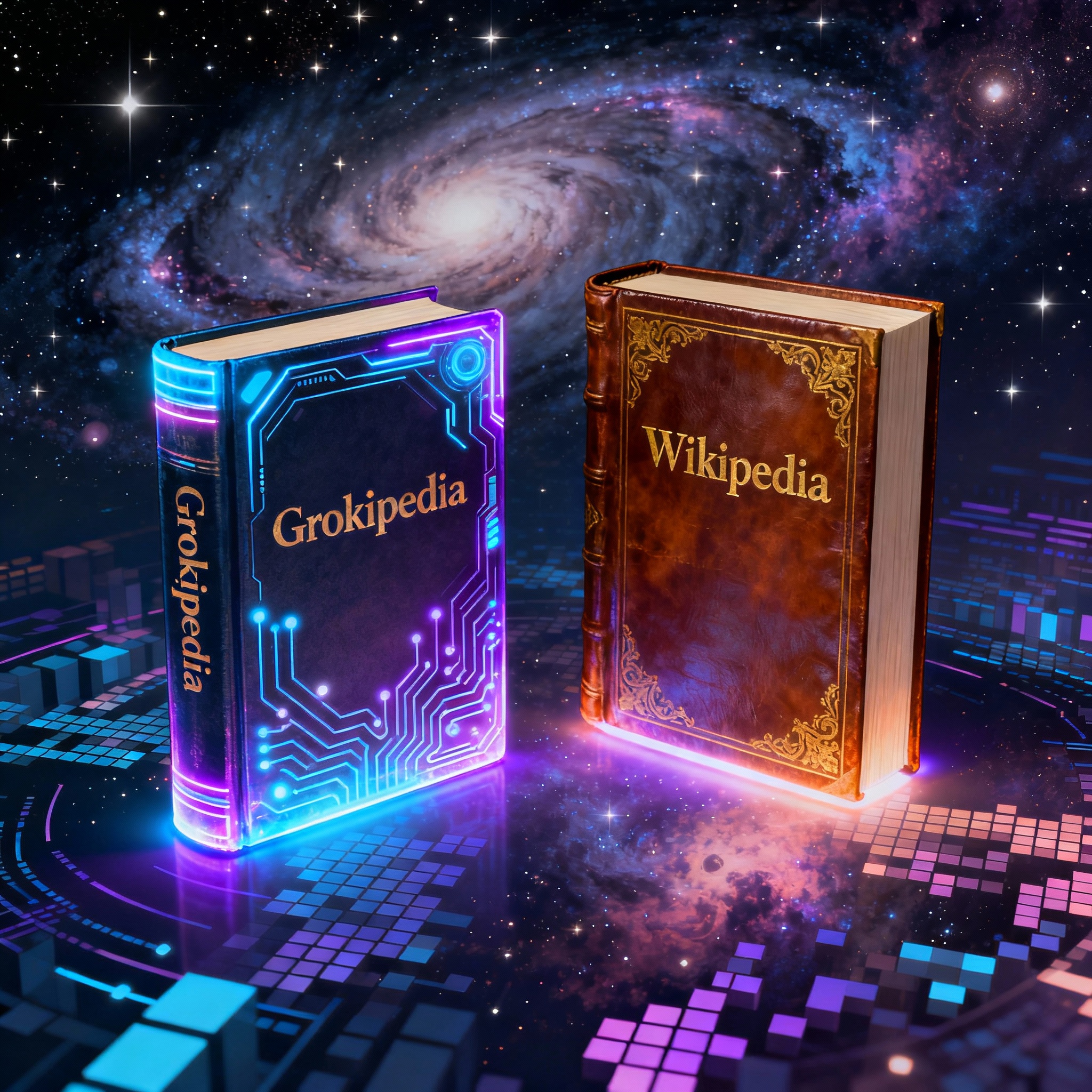Grokipedia: Elon Musk’s AI Encyclopedia Challenging Wikipedia in 2025
Grokipedia: Elon Musk’s AI Encyclopedia Revolution
Grokipedia is an innovative, artificial intelligence-powered online encyclopedia created by Elon Musk and his xAI team, designed to challenge Wikipedia’s dominance with a fresh vision for open knowledge in the digital age. Its October 2025 launch made headlines, promising a less biased, swiftly-updated platform fueled by the power of AI.

The Birth of Grokipedia
Elon Musk announced Grokipedia as an AI alternative to Wikipedia, responding to critics who claim Wikipedia suffers from “woke” bias and selective editorial policies. Musk’s team utilized Grok, a state-of-the-art AI chatbot, to generate and curate over 885,000 articles at launch, adapting many from Wikipedia itself but with significant changes driven by AI moderation and Musk’s philosophical leanings.
How Grokipedia Works
Unlike Wikipedia’s human-driven model, Grokipedia uses Grok to synthesize, edit, and update information in real time, aiming to combat the limitations and slow pace of manual moderation. Key processes include:
-
AI-Powered Article Creation: Grokipedia’s entries are written, fact-checked, and edited by Grok, not by volunteers.
-
Wide Source Intake: Articles pull from diverse platforms, including those sometimes excluded by Wikipedia, theoretically neutralizing bias.
-
Synthetic Corrections: AI analyzes text for accuracy and neutralizes subjective language.
-
Limited Community Editing: Users can suggest corrections via an online form, but direct article editing is unavailable for now.
Major Features and Design Philosophy
-
Minimalist User Interface: Clean, search-focused design for fast access and mobile optimization.
-
Real-Time Updates: Rapid integration of breaking news and developments.
-
Creative Commons Licensing: Many articles display disclaimers noting adaptation from Wikipedia under the ShareAlike license.
-
No Inline Citations: Unlike Wikipedia, Grokipedia provides fewer direct external references, offering streamlined reading but less transparency.
Grokipedia vs Wikipedia: Key Differences
| Feature | Grokipedia | Wikipedia |
|---|---|---|
| Article Creation | AI-generated | Human-written |
| Real-Time Updates | Instant (via AI) | Volunteer-based, slower |
| Source Diversity | Wider, less censorship | Selective, moderated |
| Editing Model | Centralized, AI-controlled | Open, community-based |
| Licensing | CC ShareAlike + notice | CC-BY-SA |
| Content Volume | ~885,000 articles at launch | ~8 million articles (2025) |
| Bias Concerns | Claims to reduce bias via AI | Criticized for “woke” bias |
| Controversies | Ideological tilt, accuracy gaps | Disputes over liberal bias |
| Transparency | Limited citations/references | Full reference history |
| Nonprofit vs Commercial | xAI commercial project | Wikipedia nonprofit |
Launch, Reception, and Early Criticism
Grokipedia’s debut drew heavy web traffic and controversy. The site crashed soon after launch but quickly returned online, giving users access to its vast database of AI-written articles. Critics pointed out many entries copied Wikipedia content verbatim, with adaptations reflecting Musk’s worldview or suppressing unfavorable details about figures he admires.
Content Comparisons & Controversies
-
Donald Trump’s Profile: Grokipedia omits mentions of potential conflicts and crypto endorsements present in Wikipedia’s entry.
-
Elon Musk’s Profile: Wikipedia covers controversies like the “Nazi salute” incident; Grokipedia does not.
-
Gender Entry: Grokipedia presents gender as binary, while Wikipedia recognizes cultural, psychological, and behavioral diversity in gender identity.
-
Right-Leaning Editorial Slant: Many entries highlight conservative viewpoints and challenge mainstream narratives, which some experts argue may perpetuate new forms of bias.
-
Fact-Checking Concerns: Early reviewers spotted factual errors and unsupported claims, drawing debate over the reliability of AI moderation.
Ideological Vision and Underlying Mission
Musk describes Grokipedia as a “vital step towards understanding the Universe” and an antidote to what he sees as Wikipedia’s ideological capture. The platform is positioned not just as a tech innovation but as a corrective force against perceived groupthink and propaganda in mainstream information sources.
Is Grokipedia the Future of Knowledge?
Supporters argue that AI can overcome human limitations, accelerate updates, and diversify perspectives in online encyclopedias. Critics, however, warn that algorithmic bias, lack of transparency, and the absence of community-driven consensus may trade one form of editorial challenge for another.
-
Pros:
-
Lightning-fast updates.
-
Potential for wide-ranging source inclusion.
-
Streamlined reading experience.
-
-
Cons:
-
Lower transparency and fewer references.
-
Ideological tilt and lack of direct human moderation.
-
Content gaps and factual inaccuracies.
-
What’s Next for Grokipedia?
Musk has pledged ongoing improvements, with plans to stop referencing Wikipedia by year’s end and potentially open the platform for broader community input. The Wikimedia Foundation, which runs Wikipedia, remains unphased, emphasizing its commitment to human-driven, consensus-based knowledge creation.
Conclusion: Navigating a New Era of Online Knowledge
Grokipedia’s arrival marks a turning point in online information—one where AI, ideological debate, and questions about bias and editorial control intersect. For educators, students, content creators, and anyone seeking answers online, Grokipedia offers a new, evolving field to explore, challenge, and learn from.
Whether Musk’s vision of a bias-free AI encyclopedia will succeed remains to be seen. For now, Grokipedia stands as both a technological experiment and a cultural flashpoint in the ongoing battle for trusted knowledge.







